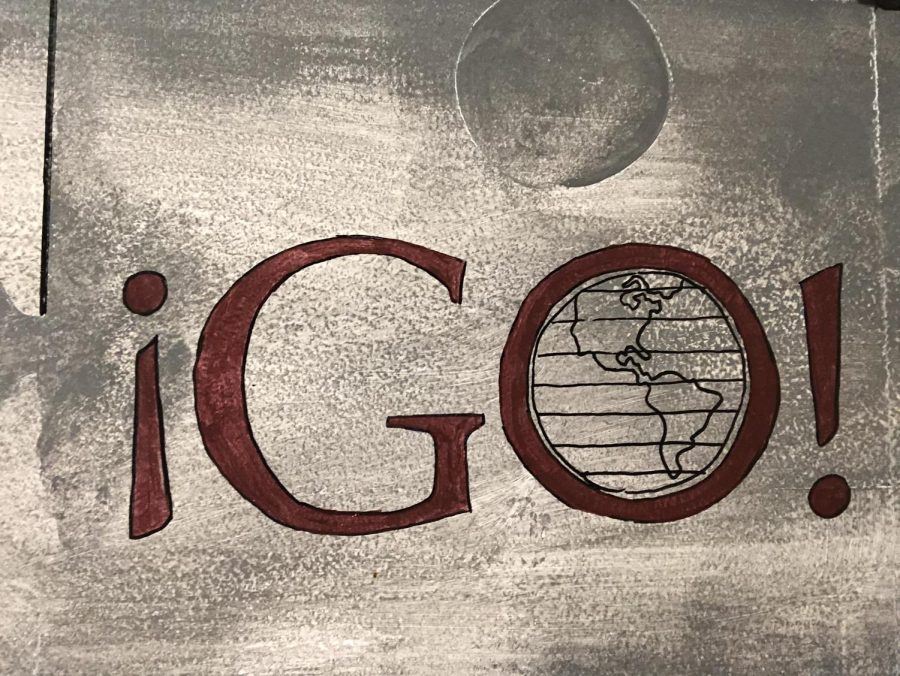GO! But With More Context
By Eric Stolar
Recently The Ram posted an opinion piece, “When Charity GO!es Wrong” written by Sean Franklin, offering some critique of Fordham’s Global Outreach (GO!) program. As someone who has been involved in Global Outreach as a participant, leader and board member, this article immediately caught my attention.
I fully believe that GO! is one of the best things I have ever done at Fordham, but I will also be one of the first to admit that it is not a perfect program. Programs like GO! should be critiqued in order to keep their operations transparent and their work beneficial. However, if you’re going to offer critique on the program, you must do so with some insight as to what the program actually is.
I want to address and essentially explain some things that were misrepresented in Franklin’s piece. To begin, yes it is correct that GO! is not a charity organization, nor are the things it does charity.
In order to give some better context as to who we are, I suggest taking a look at the GO! website, Fordham.edu/go, where you will see that GO! is “a cultural immersion and service program…where Fordham students learn about various issues of social, economic, political and environmental injustice while living a simple lifestyle that fosters communal and spiritual growth.”
It is also explained to everyone who participates in the program that we are not a charity and the service we accomplish on our projects is not what we are about. We explain that traveling abroad with good intentions to do charity is not simply enough. Throwing money into charity does nothing to resolve injustice, rather, it delays the economic and materialistic hardships of injustice.
Charity without social change is nothing more than extending systems of oppression.
If you want to know what GO! is about from my point of view, GO! is about learning. It is learning about your position as a student at a university that is just about as privileged as you can get.
It is about learning that while you are sitting in your dorm complaining about your forced triple in South, somewhere in this world there is another kid who deserves to be in your seat just as much as you but instead have been oppressed by series after series of failed social systems of inequality.
Saskia Verdoes, the head of GO!’s community partner in Romania, attempted to provide some insight on how her organization views students who come on trips like GO! projects. Verdoes responded to Franklin’s article in a Facebook comment, “I think it’s important to know that we, as ONG, do not consider the students to be charity volunteers at all!”
I also want to point out that fundraising and charitable giving are not mutually exclusive — you can fundraise for things other than charity. GO! teams fundraise to offset the program cost for everyone on their team.
As pointed out by Franklin, GO! Projects can cost close to $2,000 per person.
That’s a lot of money to expect an undergrad to just toss over, especially with the cost of a Fordham education. Plus, it’s true that instead of spending $1,000 on a project, you could donate $1,000 to a charitable organization, but that money is going to hold very different weight.
The thing is, a lot of the organizations GO! partners with operate on relatively small scales. Many of these organizations rely on the annual income from groups like GO! teams to function. For example, when I led GO! Mexico this past January, my estimated costs were $1,700 per person for 12 people.
That covered our flights and our program fee, which covered everything else for us.
But that program fee did not just cover us — it also was used to buy a week’s worth of food and supplies for the families who housed us for two nights and help contribute to the wages of the employees of the organization.
And sure it would be great if Campus Ministry could pay for the entire cost of a GO! Project, but there are just a few issues with that.
The main issue being that GO! and Campus Ministry are completely separate organizations. Campus Ministry is its own department with its own budget, and Global Outreach is a program under the Center for Community Engaged Learning, a completely different department.
So next time someone asks you to donate to their GO! trip, I urge you to understand the context. As we say in GO!, “To Hell with Good Intentions.”
Eric Stolar, FCRH ’19, is an environmental studies major from Erie, Pennsylvania.








































































































































































































